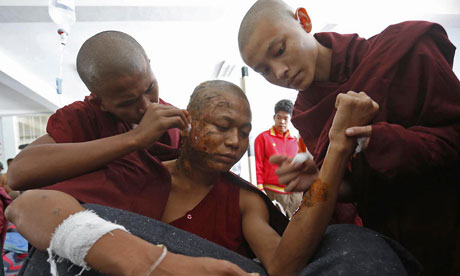By Brendan Oliver Bergh
Impunity Watch Reporter, South America
BUENOS AIRES, Argentina – Pilots for Argentina’s infamous “death flights” have begun trial, and brought up on charges for crimes against humanity for their active participation in de facto president Jorge Rafael Videla’s “dirty war” that consumed the Latin American county for years.

From 1976-1983 during Videla’s reign as Argentina’s dictator, in addition to the armies kidnappings and murders, dissidents and political prisoners were dragged from their cells in military detention, drugged and flown over the ocean and thrown from the plane.
The trial is expected to focus on the Naval School of Mechanics (Esma) which became a military detention center for leftist dissidents, of the 5,000 political prisoners sent there, more than 90% disappeared.
Among the 68 defendants – all ex-armed forces – set for trial are eight pilots who allegedly flew and participated in the flights which contributed to the murder and forced disappearance of hundreds of Argentinians.
The most famous on trial during this new set of trials is Alfredo Astiz. Convicted in 2011 – and serving a life sentence – for crimes against humanity, the pilot affectionately known as the “Blond Angel of Death” is facing new charges for his active participation in the force disappearance of prisoners in the infamous secret detention camps in Beunos Aires. In interviews Astiz showed no remorse, claiming that he “had acted to save Argentina from left-wing ‘terrorism’”, and he dismissed his trial as an act of political vengeance.
Many of these pilots have only recently been identified, some who have been identified by survivors from the Esma detention centers and others for lapses in judgment. Emir Sisul Hess, one of the pilots on trial admitted to co-workers how his victims “fell like little ants.” He has since formally denied any involvement in the flights.
Among those testifying are 70 survivors of Esma. One survivor, Carlos Munoz, who was detained at Esma for a year remembers ” to have seen a room filled with vomit. I later found out that those who were going to be killed in the death flights were drugged and that those drugs made them throw up,” he continued, “At one point many of my cell mates disappeared and we were told they were moved somewhere else. We now know they were thrown in the water.”
Current President Cristina Kirchner has pledged to speed up and prosecute those involved with these human rights abuses. Many speculate that her commitment is linked to her husband, Nestor Kirchner who rescinded the laws that granted amnesty to security forces who participated in these military abuses.
For further information, please see:
Al Jazeera – Argentina Holds ‘Death Flights’ Trial – 29 November 2012
Bernma Malaysian National News Agency – Argentina Tries Alleged ‘Death Flights’ Pilots – 29 November 2012
Prensa Latina – Death Flight Pilots Prosecuted For The First Time In Argentina – 28 November 2012
SF Gate – Argentina’s ‘Death Flights’ Trials Begin – 28 November 2012
The Independent – Victims Of ‘Death Flights’: Drugged, Dumped By Aircraft – But Not Forgotten – 27 November 2012
BBC – Argentina ‘Angel Of Death’ Alfredo Astiz Convicted – 27 October 2011


